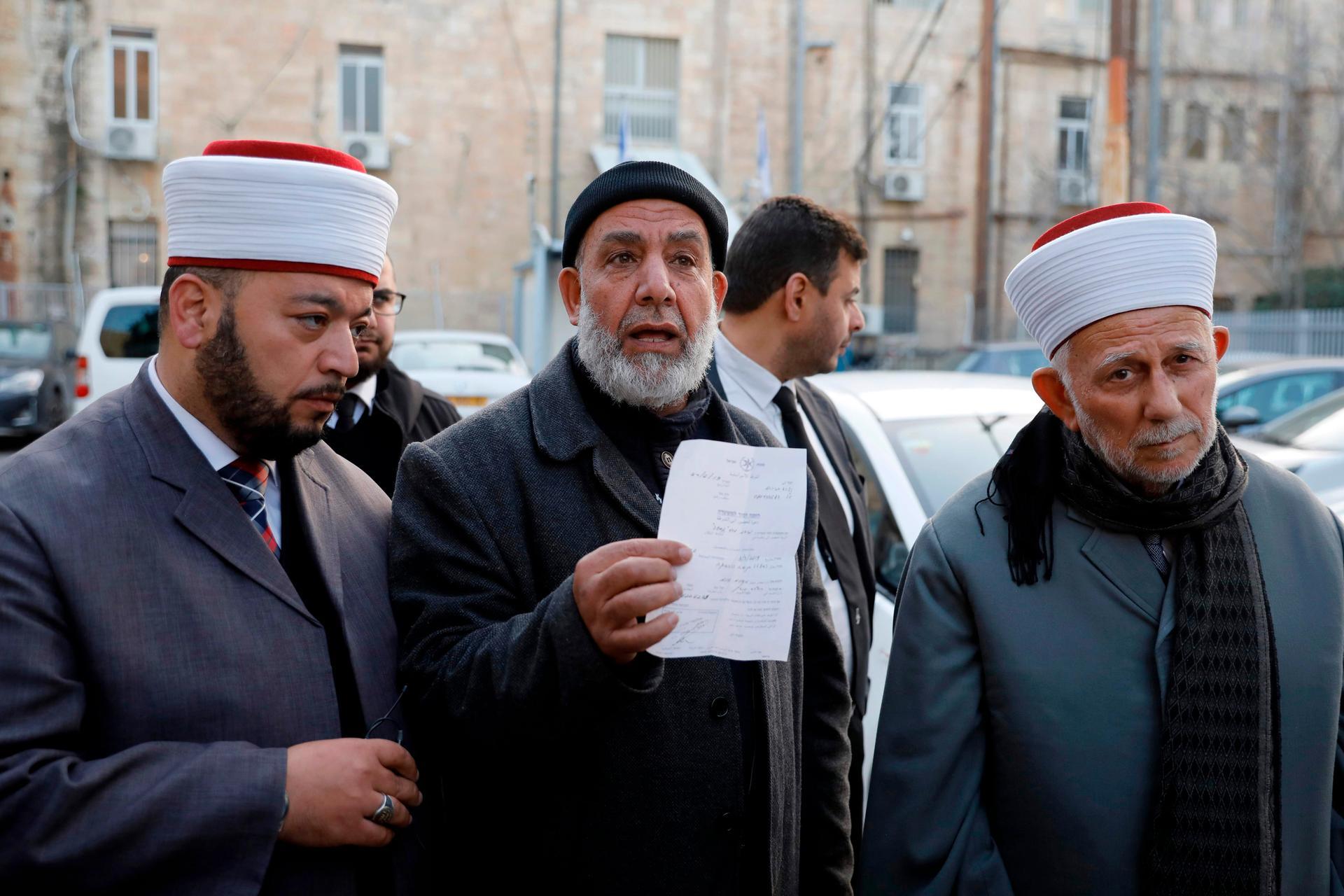Israeli police on Monday released a senior Palestinian Muslim official in Jerusalem, a day after his arrest. Sheikh Abdel-Azeem Salhab was arrested following protests at the Al Aqsa compound, after he opened one of the mosques sealed by Israel during a Palestinian uprising in 2003.
Sheikh Salhab – the head of the Islamic authority that oversees Muslim holy sites in Jerusalem – personally reopened the gate leading into the Bab Al Rahmeh mosque on Friday. Hundreds of Muslims went inside to pray for the first time in years.
Israeli police spokesman Micky Rosenfeld said Sheikh Salhab was arrested for violating an order preventing entry into a prohibited area of the holy site.
The release of the Islamic figure followed days of tension between Israeli police and the Muslim religious authorities over access to a corner of the 35-acre sacred compound known to Jews as Temple Mount and to Muslims as The Noble Sanctuary.
In the build-up to Friday prayers police arrested 60 people they suspected would incite violence, and boosted the security presence in the Old City. But the day passed without serious incidents.
The arrest drew condemnation from Jordan, the custodian of the Al Aqsa mosque compound.
Official Palestinian news agency Wafa reported that the sheikh's deputy Najih Bakira had also been arrested, but police had not confirmed it.
A lawyer for the two men, Mohammed Mahmoud, said they had been barred from Al Aqsa for seven days. The Waqf Council condemned the arrests in a statement, calling the police actions "dangerous".
A statement from Jordan's religious affairs minister, Abdul Nasser Abu Al Basal likened the arrests to "playing with fire".
There have been scuffles at the holy site recently over Israeli authorities padlocking a door leading to a side building known as the Golden Gate or Gate of Mercy.
Access was closed by an Israeli court order in 2003 during the second Palestinian intifada over alleged militant activity there, Israeli police say. but Waqf officials have argued that the organisation that prompted the ban no longer exists.
Worshippers prayed in front of the building recently, and on Friday crowds entered and prayed inside in defiance of the court ban.
The Waqf council, which has undergone recent membership changes, has been more assertive in challenging such decisions, Ofer Zalzberg, a senior analyst for the International Crisis Group, told the Agence France-Presse.
Mr Zalzberg said it seemed there were high-level contacts between Jordan and Israel to resolve the dispute, but Israeli electoral politics could interfere ahead of April 9 polls. "If this becomes an Israeli electoral issue, it will be hard for the Israeli government to act with moderation," he said.
The religious site is located in east Jerusalem, occupied by Israel in the 1967 Six-Day War and later annexed in a move never recognised by the international community.
The site is the third-holiest in Islam and a focus of Palestinian aspirations for statehood. Muslim access to Al Aqsa and the adjoining Dome of the Rock is controlled by Israeli security forces.







